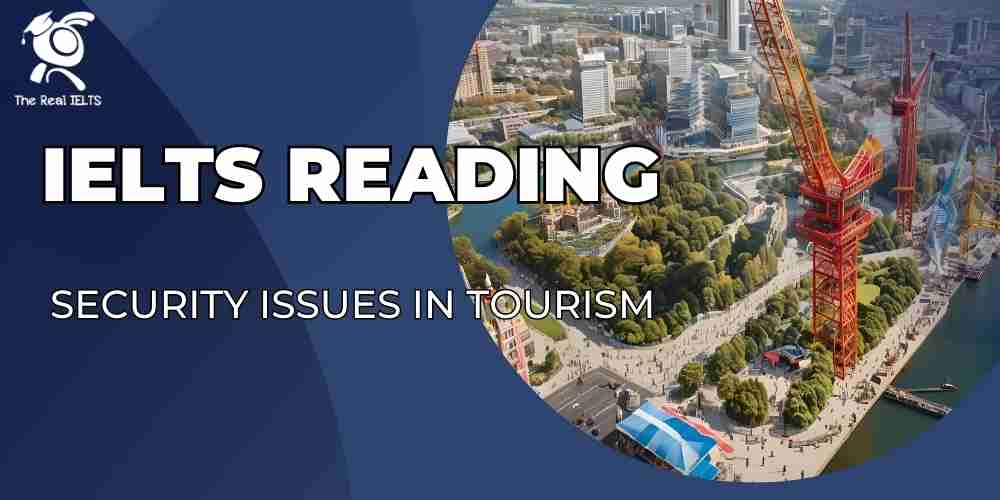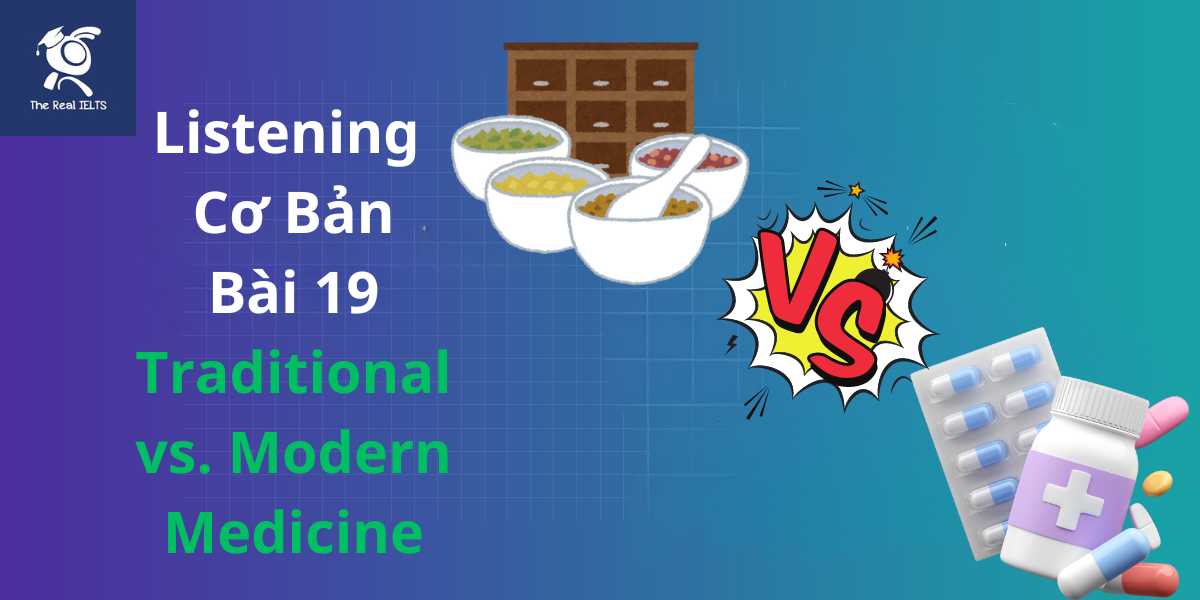IELTS Reading 80: Security Issues in Tourism là chủ đề thuộc chuỗi bài luyện tập 11 dạng bài IELTS Reading và các bài tập luyện tập.
Học lại bài cũ: IELTS Reading 79: Tourism and Infrastructure Development.
IELTS Reading: Security Issues in Tourism
Tourism has become an integral part of many economies worldwide, contributing to job creation, infrastructure development, and cultural exchange. However, alongside its benefits, tourism also brings certain security challenges that can affect both tourists and local communities. These security concerns are wide-ranging, from personal safety threats to broader issues like cybersecurity and natural disaster risks. Understanding these security issues is essential for promoting safe and sustainable tourism.
One of the primary security issues in tourism is the threat of crime. Tourists are often seen as easy targets for criminals due to their unfamiliarity with the local environment, language barriers, and visible possessions like cameras and smartphones. Crimes against tourists range from petty theft and scams to more serious crimes like assault. In many popular destinations, pickpocketing and bag snatching are common, especially in crowded areas such as public transportation hubs, marketplaces, and tourist attractions. Local authorities often work to address these issues by increasing police presence in tourist zones and implementing crime prevention programs, but the risks remain prevalent.
Terrorism poses another significant challenge for the tourism industry. High-profile terrorist attacks in tourist hotspots can deter travelers from visiting these locations, severely impacting the local economy. Regions that rely heavily on tourism may suffer greatly if travelers perceive them as unsafe. To counteract these threats, many countries have heightened security measures at airports, hotels, and public sites. Furthermore, international cooperation between governments helps in monitoring and addressing potential threats to ensure the safety of tourists.
Cybersecurity has also become a growing concern in tourism, especially as more travelers rely on digital tools for booking accommodations, transportation, and other services. Tourists frequently use public Wi-Fi networks in airports, hotels, and cafes, which can expose them to cyber threats. Hackers often exploit unsecured networks to steal personal information, including credit card details and travel itineraries. To minimize these risks, travelers are advised to use secure networks, avoid sharing sensitive information over public Wi-Fi, and enable two-factor authentication for important accounts. Many travel companies have also increased their cybersecurity measures to protect customers’ information.
Natural disasters present yet another security concern. Destinations prone to hurricanes, earthquakes, tsunamis, or other natural disasters can be dangerous for tourists who may be unprepared or unaware of local risks. In recent years, climate change has intensified the frequency and severity of such events, increasing the importance of disaster preparedness for the tourism sector. Tour operators and local governments often provide emergency plans and guidelines for tourists, but visitors should remain aware of possible risks and have contingency plans.
Finally, health security has gained prominence, especially in the wake of global pandemics such as COVID-19. Infectious diseases can spread rapidly in popular tourist destinations where travelers from different parts of the world converge. The pandemic led to a re-evaluation of health protocols within the tourism sector, with new standards for hygiene, vaccination, and traveler monitoring. Many countries have implemented health screening procedures, and tourism providers have adopted enhanced sanitation practices. However, health security remains a persistent concern, as new viruses and health threats continue to emerge.
In conclusion, security issues in tourism encompass a range of concerns, from crime and terrorism to cyber risks, natural disasters, and health threats. As tourism continues to grow globally, both travelers and industry professionals must be proactive in addressing these challenges. Ensuring safety requires a collaborative approach, involving governments, local authorities, businesses, and tourists themselves. Only by addressing these security issues can the tourism industry foster a safe and enjoyable experience for everyone involved.
Questions
1. Multiple Choice (Chọn đáp án đúng)
- What is the main reason tourists are often targeted for crimes?
- A. They carry a lot of cash.
- B. They are unfamiliar with the local environment.
- C. They do not understand the local language.
- D. They stay in one place for too long.
- How do many countries try to address the risk of terrorism in tourism?
- A. By banning travel to high-risk areas.
- B. By increasing cybersecurity measures.
- C. By cooperating internationally to monitor threats.
- D. By limiting the number of tourists.
2. True/False/Not Given (Đúng/Sai/Không có thông tin)
- Tourists have become less of a target for criminals due to increased security.
- Cybersecurity threats are mainly a concern in tourist accommodations.
- Natural disasters have become more frequent because of climate change.
3. Yes/No/Not Given (Có/Không/Không có thông tin)
- The article suggests that tourism has a negative impact on local economies.
- Tourists are advised to avoid using public Wi-Fi networks for secure transactions.
- Health security became a major focus for tourism due to the COVID-19 pandemic.
4. Matching Information (Ghép thông tin)
Match the following statements with the correct paragraph (A, B, C, etc.):
- Discusses the role of international cooperation in combating terrorism in tourism.
- Mentions an increase in natural disasters linked to climate change.
- Explains why tourists are vulnerable to cyber threats.
5. Matching Headings (Ghép tiêu đề)
Choose the correct heading for each paragraph:
- A. The Role of Health Measures in Tourism Security
- B. The Impact of Cybersecurity on Tourists
- C. Addressing Natural Disasters in Tourist Destinations
- D. Economic Implications of Terrorism on Tourism
6. Matching Sentence Endings (Ghép kết thúc câu)
Complete each sentence by choosing the correct ending:
- Tourists often face risks from petty crime because they…
- i. …lack awareness of local safety practices.
- ii. …are unaware of legal procedures.
- iii. …rely on local law enforcement for guidance.
- Climate change has made natural disasters…
- i. …a minor issue for some tourist areas.
- ii. …a significant risk to popular destinations.
- iii. …something that tourists can easily prepare for.
7. Sentence Completion (Hoàn thành câu)
Complete the sentences with no more than two words from the text:
- The growing number of ________ has led to enhanced health measures in tourism.
- Tourists are advised to avoid using ________ for secure transactions due to cyber threats.
8. Summary Completion (Hoàn thành bản tóm tắt)
Complete the summary with words from the text:
Tourism contributes to economic growth but also brings various security concerns. Tourists often become targets of ________ due to their lack of familiarity with the local environment. Terrorism remains a major issue, and governments work together internationally to manage this threat. Additionally, the rise in ________ due to climate change affects some destinations, making disaster preparedness essential.
9. Diagram Label Completion (Hoàn thành nhãn sơ đồ)
Label the diagram with no more than three words:
- Diagram: Security Measures in Tourism
- Personal safety: ________
- Cybersecurity: Avoid ________
- Natural disasters: Implement ________
10. Short Answer Questions (Câu hỏi trả lời ngắn)
Answer the questions using no more than three words:
- What is a common crime against tourists in crowded areas?
- Which network should tourists avoid for secure transactions?
- What has increased the frequency of natural disasters?
11. Table/Flowchart/Note Completion (Hoàn thành bảng/sơ đồ dòng/chú thích)
Complete the table with words from the passage:
| Security Issue | Risk Factor | Mitigation Strategy |
|---|---|---|
| Crime | Unfamiliarity with ________ | Increase police presence |
| Cybersecurity | Public ________ | Use secure networks |
| Health Security | Spread of ________ | Enhanced hygiene practices |
Đáp án
1. Multiple Choice (Chọn đáp án đúng)
- B. They are unfamiliar with the local environment.
- C. By cooperating internationally to monitor threats.
2. True/False/Not Given (Đúng/Sai/Không có thông tin)
- False – Tourists continue to be targets for crime despite increased security.
- Not Given – Cybersecurity threats are not limited to tourist accommodations.
- True – The passage mentions that climate change has increased the frequency of natural disasters.
3. Yes/No/Not Given (Có/Không/Không có thông tin)
- No – The article discusses security challenges, not negative economic impacts.
- Yes – Tourists are advised to avoid using public Wi-Fi for secure transactions.
- Yes – The passage highlights COVID-19’s impact on health protocols in tourism.
4. Matching Information (Ghép thông tin)
- Paragraph on Terrorism – Discusses international cooperation against terrorism.
- Paragraph on Natural Disasters – Mentions increased natural disasters due to climate change.
- Paragraph on Cybersecurity – Explains tourists’ vulnerability to cyber threats.
5. Matching Headings (Ghép tiêu đề)
- A. The Role of Health Measures in Tourism Security – Health security paragraph.
- B. The Impact of Cybersecurity on Tourists – Cybersecurity paragraph.
- C. Addressing Natural Disasters in Tourist Destinations – Natural disaster paragraph.
- D. Economic Implications of Terrorism on Tourism – Terrorism paragraph.
6. Matching Sentence Endings (Ghép kết thúc câu)
- i. …lack awareness of local safety practices.
- ii. …a significant risk to popular destinations.
7. Sentence Completion (Hoàn thành câu)
- infectious diseases
- public Wi-Fi
8. Summary Completion (Hoàn thành bản tóm tắt)
- crime
- natural disasters
9. Diagram Label Completion (Hoàn thành nhãn sơ đồ)
- personal safety
- public Wi-Fi
- disaster plans
10. Short Answer Questions (Câu hỏi trả lời ngắn)
- Pickpocketing
- Public Wi-Fi
- Climate change
11. Table/Flowchart/Note Completion (Hoàn thành bảng/sơ đồ dòng/chú thích)
| Security Issue | Risk Factor | Mitigation Strategy |
|---|---|---|
| Crime | local environment | Increase police presence |
| Cybersecurity | public Wi-Fi | Use secure networks |
| Health Security | infectious diseases | Enhanced hygiene practices |















